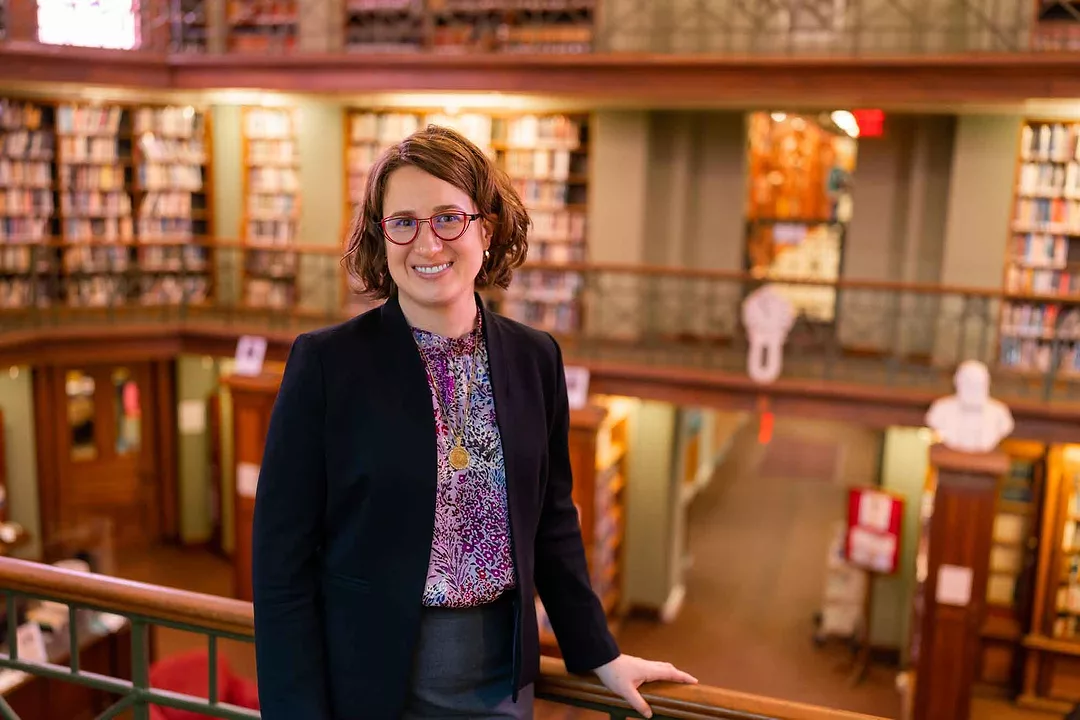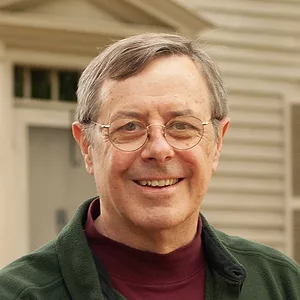Victor Curran: On the Concord Free Public Library website, you wrote, “It is a very exciting time to get to know the staff, to serve this wonderful community and all those who support the library.” You’re taking the reins in the final stages of an expansion that will radically change the way you engage with the community—and in the middle of a global pandemic. What do you see as your most urgent priorities?
Emily Smith: First, our staff. To open our new spaces and provide new services and programs, we need to have all of our vacancies filled and all of our staff ready to go. Together we’ll be able to bring the dream into reality.
Next, to serve the community. Many creative ideas have gone into designing new spaces to offer the services that the community wants. The Library Corporation did the hard work of raising the money and getting it built, and now it’s up us to make it happen.
Young people want a space to call their own. The Teen Lounge and the study room will offer a choice of a quiet space or a not-so-quiet space that encourages collaboration. There’s school and there’s home, and the library is a “third space”—a place to just be, to escape the pressures of books, academics, sports, and so forth. We give kids somewhere just to breathe and enjoy being around their peers. In the pandemic, we hope to keep that social connection going here.
The library is the place where everyone is welcome. Not everyone comes for the books. Some come for making, for doing things with their hands, and now we have a whole house dedicated to that.
Another new space, the Goodwin Forum, can accommodate large meetings without disturbing other patrons using the library. It will include state-of-the-art technology and even a kitchen.
VC: You say the Teen Lounge can offer an escape from books. What a radical thing to say about a library!
ES: Some people come here for a quiet place to read and think, and others come here for social contact. One way they can make that connection is by making a craft. When everyone is new at something, they can learn together, share a laugh, and meet neighbors they might not encounter otherwise.
VC: What’s it like to lead a library in Concord, where there is so much literary history?
ES: The library is about connecting community members with each other and with resources. One recent example is “Live Like Louisa May Alcott Day,” a program the library did to make history tangible. We made books and had people spinning yarn and roasting chestnuts. And hopefully, we inspired some folks to visit Orchard House.
We invite people to come share their knowledge with the town. We have fabulous lectures, music, and art, and in the Workshop, our new makerspace, we’ll invite people to learn in a different way, to try something new. Where everyone is a beginner, learning together encourages us to be more kind and generous with each other. That can have a ripple effect throughout the community.
VC: I’d love to hear your thoughts about the library’s Special Collections, which is such a unique resource.
ES: We’re adding more space to make more of the collection available and visible to the public. Anke Voss, the Curator of Special Collections, welcomes folks to examine objects like an original Alcott manuscript. She’ll even take your picture with the manuscript for you to share on social media. Where else can you do that?
The Concord Museum is working with us to present an exhibit next year for the 150th anniversary of the founding of the library. We’ve got some exciting things planned.
VC: Some people see information technology as a threat to the printed word. You seem to be equally at home in both worlds. How are those worlds different—or maybe not so different?
ES: Some people prefer print books and others prefer audiobooks or ebooks. The pandemic prompted many people to try ebooks for the first time, because you can check them out from the comfort of your home. There’s a space for everyone. I personally prefer to read ebooks because they’re convenient, but if a book is only available in print, I can easily get a printed copy. Certain books are better in print, such as graphic novels. We embrace all methods of getting information to people, whether it’s learning through technology, through another person, or through the written word.
VC: I understand you’re a scout leader. How do your work with scouting and your experience as a parent inform your vision for the library?
ES: My husband is the Cubmaster at the Thoreau School, and I’m the leader of the Concord-Carlisle Girl Scouts. We’ve gotten to know many people through the school system and through the scouting community.
Kids need experiences beyond school that help them learn to be good leaders—and good followers. In Girl Scouts, we learn to try, fail, and try again. That’s key for the Workshop here at the library. Kids need to know they don’t have to do everything right on the first try. When you do maker activities, if it doesn’t come out right, you go back and figure out what the problem was. The library is a safe space to learn in a different way than you do in a classroom. You’re supported as you try to find out more, try to figure it out with an expert—or maybe you become the expert!
Scouting has taught me about doing programming that keeps kids engaged. It gives me an appreciation for our staff and the programs they offer for youth.
VC: When you talk about the library, you emphasize collaboration. How will you and the staff complement each other?
ES: I want to make sure that everyone who has an idea has an opportunity to contribute and be heard. That also applies to the community; if the community asks for something, we listen, we hear, and we try to provide what the community wants.
We want the excellence and innovation in our community to flourish in our new spaces. We’re on the cusp of finishing up this project and turning it over to the community, and that’s what gets me up every morning.
Come see what the library has to offer. We’re getting ready to celebrate our 150th anniversary next year, and we’re excited to open the next chapter.


